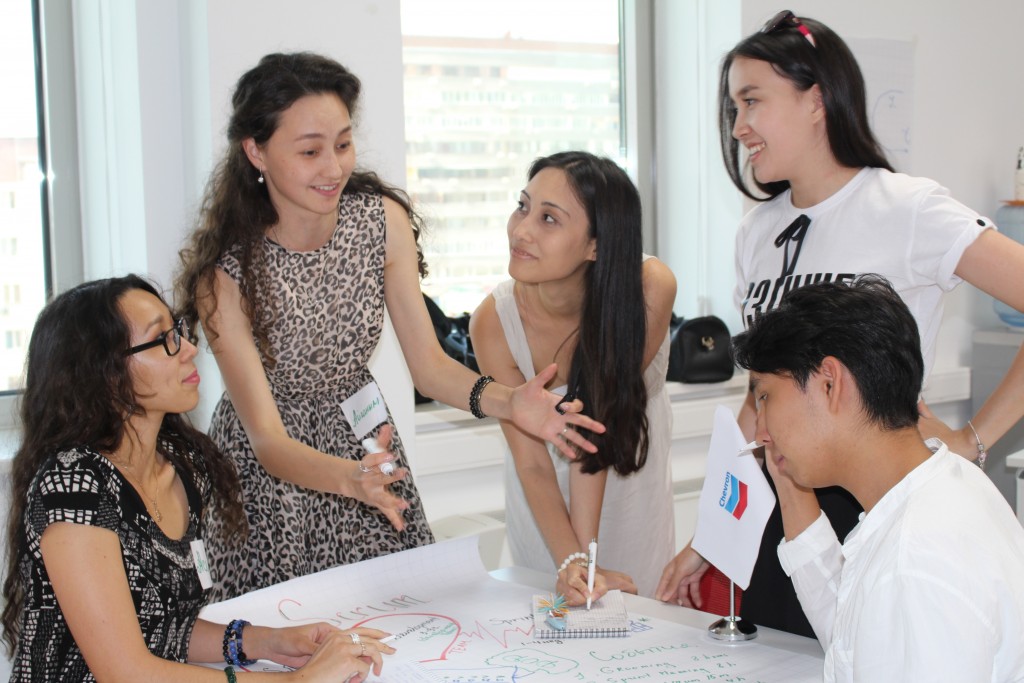Social entrepreneurship is growing in popularity in Kazakhstan. In recent years, we’ve seen more people starting social enterprises in different areas. One of the initiatives supporting the development of social entrepreneurship in Kazakhstan is the I-SEED project run by the British Council in partnership with Chevron and support from the Atamaken National Chamber of Entrepreneurs.
I-SEED stands for “Innovations – Social Entrepreneurship and Education.” The project aims to promote the development of sustainable solutions to social problems faced by young Kazakhs through social entrepreneurship. The main target audience is young people aged 16-29. Through the project they learn to become engaged, active citizens and make their first attempts to contribute to their communities through social entrepreneurship. The project also helps them develop their motivation to study and succeed, acquire new skills and achieve their goals – both personal and for their wider community.
As part of the I-SEED project, young people can train and attend workshops on social entrepreneurship, business planning, marketing, pitching and making presentations. After the training, participants design and implement their own projects, allowing them to put their newly-acquired skills and knowledge into practice.
The I-SEED project has been running since 2014 and it has undergone numerous transformations based on feedback from project participants and partners. For example, in 2017 it introduced a mentorship programme: participants who already know what kind of social enterprise they want to set up can select a mentor who has significant business experience to provide advisory support. This could include support for planning, pitching and implementing their ideas.
Over the last three years, around 1,000 young people from Almaty, Astana, Tekeli and Yereimentau have taken part in the project. They have implemented more than 50 projects to support vulnerable groups, promote a healthy lifestyle and integrate people with disabilities into the wider community. As a result of the project, 13 participants have started their own businesses, and five of them are already active social entrepreneurs creating not just profit and employment opportunities for others, but also positive change in their communities. In addition, many project alumni continue to be actively engaged in social work as volunteers.

